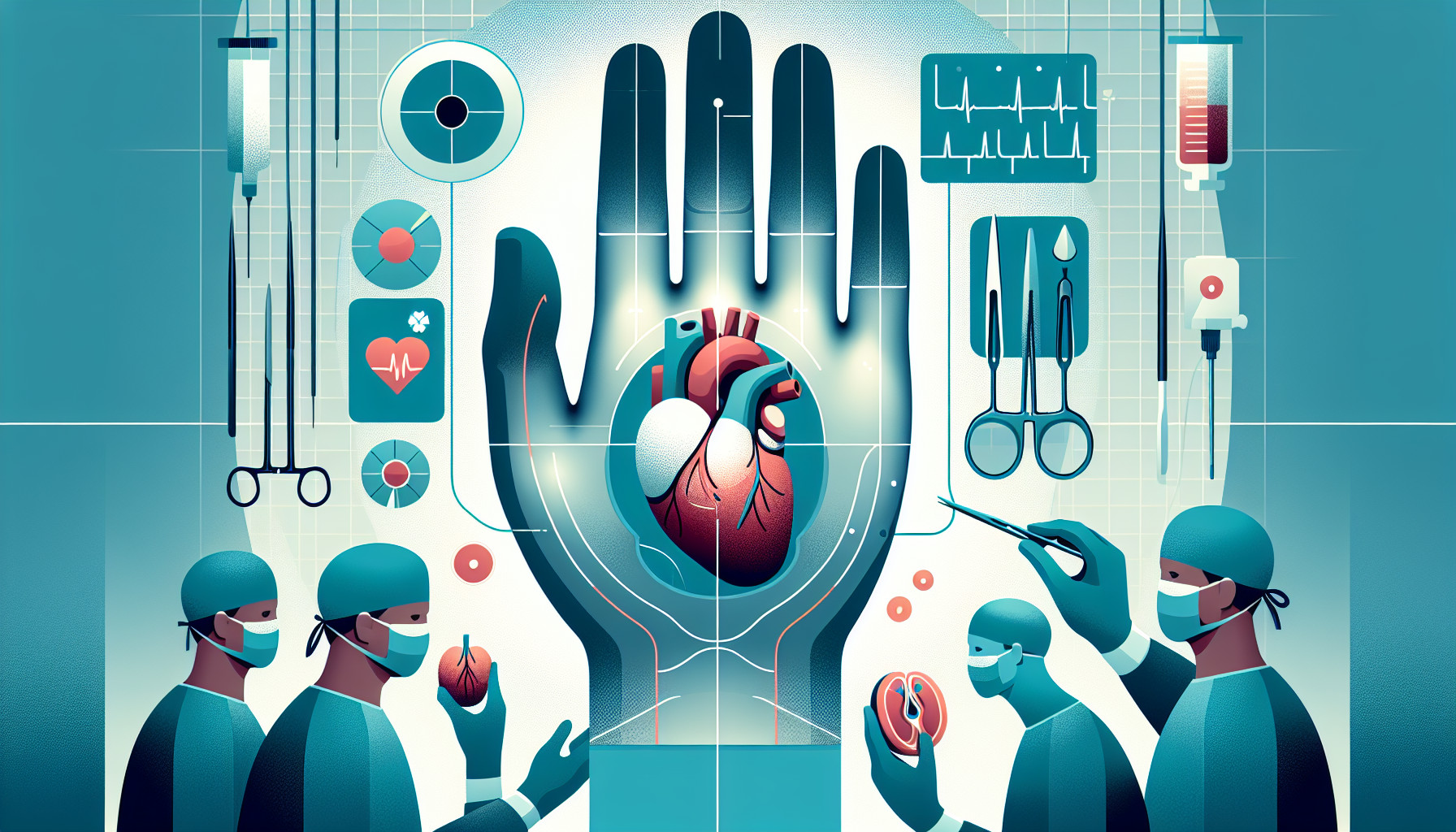Our Summary
In 2015, doctors at the Children’s Hospital of Philadelphia transplanted hands onto an 8-year-old patient who had lost both hands and feet six years earlier. The transplant allowed the nerves in the patient’s hands to regain their normal functions. This study, carried out over six years, used magnetoencephalography (MEG), a type of brain imaging, to see how the brain’s sensory processing regions changed after the transplant.
Initially, the brain processed sensory information from the lips in the area that normally processes information from the hands. As the hands regained function, this sensory information shifted back to the area of the brain that normally processes it. The study continued to monitor sensory and motor responses for six years after the transplant.
The patient’s brain responses to touch on the fingers were found to be larger and smoother than normal, and this pattern continued throughout the monitoring period. However, the brain’s responses to touch on the lips and individual fingers returned to normal locations. The size of the motor responses in the brain was typical for the patient’s age, but the gamma-band response (a type of brain wave) was larger than that of a reference population.
In other words, the patient’s brain was able to adapt and organize sensory information in a typical way after the hand transplant, but the responses to touch on the fingers were unusually large. This remained the case even six years after the transplant. The patient did not report any unusual perceptions or phantom pain.
This research shows that the brain can adapt to changes in the body, like a hand transplant, in complex ways. It also demonstrates the potential for using MEG to study brain changes after such procedures.
FAQs
- How does the brain adapt after a hand transplant based on the study carried out at the Children’s Hospital of Philadelphia?
- What is magnetoencephalography (MEG) and how was it used in this study?
- Did the patient experience any unusual perceptions or phantom pain after the hand transplant?
Doctor’s Tip
A helpful tip a doctor might tell a patient about hand transplant is to be patient and allow time for the brain to adapt to the new hands. It is important to follow the post-transplant care instructions provided by the medical team and to attend regular follow-up appointments to monitor progress. Additionally, maintaining a positive attitude and staying motivated during the rehabilitation process can help improve outcomes. It is also important to communicate any concerns or changes in sensation to the medical team to ensure proper support and adjustment.
Suitable For
Patients who are typically recommended for hand transplant surgery are those who have lost one or both hands due to traumatic injury, severe infection, or congenital deformity. These patients must have a good overall health status and be motivated to undergo a lengthy and complex rehabilitation process. Candidates for hand transplant surgery are carefully evaluated by a multidisciplinary team, which includes surgeons, psychologists, physical therapists, and social workers.
Hand transplant surgery is considered a last resort treatment option for patients who have exhausted all other options, such as prosthetics or reconstructive surgery. It is important for patients to have realistic expectations about the outcomes of the surgery, as hand transplants do not always result in full function or sensation in the transplanted hands.
Overall, candidates for hand transplant surgery must be willing to commit to a lifelong regimen of immunosuppressive medications to prevent rejection of the transplanted hands. They must also be willing to participate in intensive physical therapy and rehabilitation to regain function and sensation in the transplanted hands.
Timeline
Overall, the timeline of what a patient experiences before and after a hand transplant includes:
Before the transplant:
- Patient has lost both hands and is living with prosthetics or other assistive devices
- Patient undergoes extensive evaluation and preparation for the transplant surgery
- Donor matching and surgical planning takes place
After the transplant:
- Immediately after surgery, patient undergoes intensive rehabilitation to regain function in the transplanted hands
- Patient may experience pain, swelling, and other side effects from the surgery
- Over time, patient’s nerves begin to reconnect with the transplanted hands, allowing for regained sensation and motor function
- Patient continues with ongoing therapy and rehabilitation to improve hand function and adapt to having new hands
- Patient’s brain undergoes changes in sensory processing regions to accommodate the new hands, as seen in the study mentioned above
- Long-term monitoring and follow-up are conducted to assess the success of the transplant and address any complications that may arise
Overall, the process of adapting to a hand transplant is complex and requires ongoing care and support to ensure the best possible outcome for the patient.
What to Ask Your Doctor
Some questions a patient should ask their doctor about hand transplant include:
- What are the risks and potential complications of a hand transplant?
- How long is the recovery process and what kind of rehabilitation will be needed?
- How will the anti-rejection medications affect my overall health and quality of life?
- What are the long-term outcomes and success rates of hand transplants?
- How will the transplant impact my daily activities and function of the transplanted hand?
- Will I need ongoing therapy or follow-up care after the transplant?
- What kind of support system will I need during the recovery process?
- Are there any alternative treatments or options to consider instead of a hand transplant?
- How will the transplant impact my overall quality of life and mental well-being?
- What can I expect in terms of sensation and motor function in the transplanted hand over time?
Reference
Authors: Gaetz W, Dockstader C, Furlong PL, Amaral S, Vossough A, Schwartz ES, Roberts TPL, Scott Levin L. Journal: Brain Res. 2023 Apr 1;1804:148262. doi: 10.1016/j.brainres.2023.148262. Epub 2023 Jan 24. PMID: 36706858
